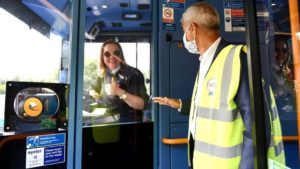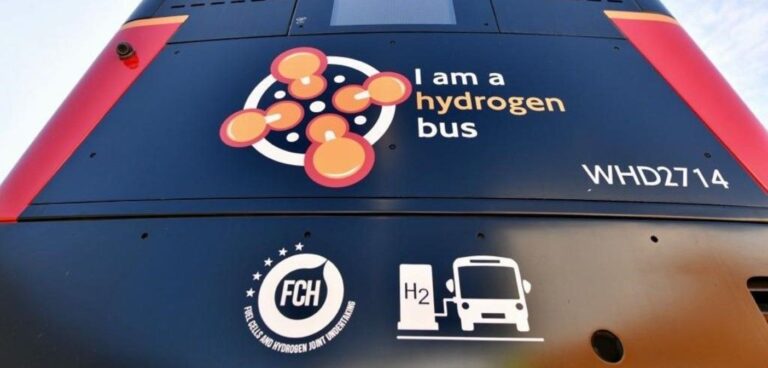England’s first hydrogen double-decker buses have launched in London, joining the capital’s fleet of 500 electric buses as it works towards a fully zero-emission service by 2030.
The 20 new environmentally-friendly buses will produce no pollution from exhausts, with water as the only by-product from the fuel cell.
Mayor of London, Sadiq Khan, said: “We have made real progress in London to clean up our air, but we still have a long way to go because toxic air pollution in our city is still leading to thousands of premature deaths every year and is stunting the growth of children’s lungs.
“Our investment in these hydrogen buses is not only helping us to clean up London’s air, but is supporting jobs and local economics across the UK. This is a great demonstration of how tackling air pollution and the climate crisis and boosting economic growth is about regions working together, investing in the very latest technology.

“I’ve worked hard to ensure TfL’s entire core bus fleet across London now meets the ULEZ standards, and this includes 500 electric buses. Our new investment in hydrogen buses will move us even closer to our ambition of making all London buses zero-emission by 2030.”
The mayor added passengers will also benefit from smoother, quieter journeys due to fewer vibrations and will be able to take advantage of free-to-use USB charging points.
Manufactured by Wrightbus in Northern Ireland, the new hydrogen fuel cell double decker buses are first being introduced on route 7 between East Acton and Oxford Circus.
Wrightbus CEO, Buta Atwal, added: “At Wrightbus, we’re incredibly proud to be launching our world-first zero emission hydrogen double-deckers onto the streets of London to help turn its iconic red buses green.
“London residents – and visitors to the capital from around the world – can experience what it’s like to ride in a UK-made hydrogen-fuelled vehicle that produces no harmful emissions from its exhaust.
“Thanks to TfL’s visionary approach, the city will have the first fleet of hydrogen double-deckers in England and the benefits to the city in terms of CO2 reduction will be significant. We hope that other cities around the country will follow London’s lead and help us in our ambition to decarbonise public transport and improve air quality.”





